Vayetzei 2016: Liar, Liar, Pants on Fire
by devadmin | December 8, 2016 8:23 pm
 We begin with big mazel tov wishes to Yonina and Max Stern, excited parents for the very first time, upon the birth of a baby boy who will IM’h be named at the bris this Sunday morning over at Beth Sholom. All are invited. Mazel tov to our good friends Aliza and Shlomie Liechtung upon the arrival of yet another grandchild, keyn yirbu, and to the entire extended Liechtung and Schachter families. As well, mazel tov to Beth and Ronnie Stern, of Teaneck, New Jersey and to the extended Jacobs and Stern families.
We begin with big mazel tov wishes to Yonina and Max Stern, excited parents for the very first time, upon the birth of a baby boy who will IM’h be named at the bris this Sunday morning over at Beth Sholom. All are invited. Mazel tov to our good friends Aliza and Shlomie Liechtung upon the arrival of yet another grandchild, keyn yirbu, and to the entire extended Liechtung and Schachter families. As well, mazel tov to Beth and Ronnie Stern, of Teaneck, New Jersey and to the extended Jacobs and Stern families.
Raboyseyee and Ladies
Liar, Liar, Pants on Fire
A comment and questions from a reader, has resulted in an expanded but mamish enjoyable masterpiece on parshas Vayeytzei. Pace yourselves.
This past shabbis a lively discussion broke out after a few heard that our Matriarch Rivka, Mother to Yaakov and Eisav, stars of this week’s parsha of Vayeytzei, may have been but three years old when Eliezer found her at the well, snatched her up, efsher mounted her onto the camel in preparation to meet her bashert Yitzchok. A few were shocked and horrified. More so when they heard that Yitzchok was forty years old and she but three. Nu, wait until they read, below mamish, about the age disparity between Yaakov and the love interest of his life, Rochel. Ober, before we get to that love story, let’s begin with a comment received from reader Jonathan Goldberger of Englewood Cliffs, New Jersey, who wrote so gishmak, azoy:
Dear Ruv,
Gut voch, thank you again for yet another riveting and truly great parsha review.
I am sure people ask you questions all the time, and what is your pshat on this – if Eisav did not care about his bechora, birthright, why did he care so much about Yitchak’s blessing and ran around so much begging for it, doing everything Yitzhak asked and then crying about not getting it? wouldn’t it make sense that he would not care much about it? something just does not add up. they are portraying Eisav as the bad guy, so why was he trying to be good with his father?!
And of course all the nonsense about Jacob NOT being a liar, of course he lied and participated in the cover up. yes, his mother told him to, but he lied and was working diligently on making sure his lie would work, covering his arms, etc. how can he be considered a tzadik?!
Wishing you all the best.
Jonathan: Your comment contains two questions; we shall address the last one first. Where is it written that they need to be addressed in the order received? You ask how Yaakov could lie? Is lying not a sin? You ask about Eisav. And on the surface, both your questions are mamish logical and givaldig. Did Yaakov lie? Is lying permitted? When, and under what circumstances? Nu, after toiling over hundreds of folios of the heylige Gemora (would you believe but five or six?) which speak to this very topic with some amazing (tall) tales, the heylige Oisvorfer has concluded azoy: prevaricating is not absolutely forbidden. There have been, are, and will continue to be, situations -many- when one may, and efsher must, act mendaciously. In other words: lie mamish!

And we know this how and from where? From the heylige Gemora, which is replete mamish with myses (stories) where lies were told and then sanctioned. The good news: all agree that lying to save a life is permitted. Limoshol (by way of example only), let’s say that chas v’sholom the eishes chayil suspects you were out chapping when you told her that you were going out to night seder at the Yeshiva of Sheym & Eyver. She says she had you followed and instead of going to yeshiva, you were likely going in elsewhere, if you chap. What are you supposed to do? Speak emes and put your life in danger? Of course not! You lie like a rug and state emphatically that you were out, or in, doing kiruv work. Speaking emes is ‘sakonas nifoshis’ mamish (putting your life in danger)! You get the point. Exactly how that squares with a quote in the heylige Gemora (Shabbis 55a) which teaches us that the seal of the RBSO is emes, ver veyst. Then again, it’s His seal: what’s that got to do with us humanoids? Veyter.
Most agree that it’s also quite ok to prevaricate when the lie is intended to bring about, or make peace. Aharoin the Koihen Godol (High Priest) was known to tell little lies in order to make peace between two enemies. It was, according the medrish, his modis operandi. Nu, some add that one may also lie to chap a piece, if you chap, and given that both words are the same, though avada spelled differently, lying to chap the piece is also permitted. And their proof? Nu, believe it or not, proof can be found from none other than Yaakov Oveenu who, used a few words that may have had a double meaning, spoke epes a few half-truths, and used other vagaries, in order to fool his elderly and sight-challenged father into believing he was Eisav. Let’s chazir what took place just last week. Asked who he was by his father as he approached dressed as Eisav with a plan to steal the blessings Yitzchok had in mind for his first born, answered Yaakov, the patriarch known and attached to the word ’emes’, (Bereishis 27:18), azoy: “I am Eisav your firstborn.” Was that statement not mamish a complete fabrication? Avada it was! Was it? Ober says Rashi and a few others who support him: it was not a lie! How could it be a lie and not a lie? It’s us idiots who simply didn’t read the words correctly. We did not place a mental comma where one belonged. Shoin, let’s read it again according to the view that we are idiots and Rashi had it right. Answered Yaakov: “I am (the one who is here with the game you asked for, the savory meal I prepared for you mamish), then we add a comma. Let’s continue: (Whereas), Eisav is your firstborn.” Shoin, same words, two different outcomes. Who gave you the right to read the words without the comma?
 Ober, who says that if one needs to lie that one should taka employ a few vagaries and use words that could have more than one meaning? Nu, if you check out the Chofetz Chaim, Hilchois Issurei Rechilus 1:8; Sefer Chasidim 642, you will find these very instructions. Do not lie outright. Use terms that could be interpreted differently by others. When forced to mislead or mamish outright lie, utilize a phrase or words that when qualified, are at least true in your own mind. Is it your fault that the person hearing your words chose to see them as a fabrication? Not! Nu, are the words peace and piece not the same? Do they not sound the same? They do! Does the listener hear a difference between them? Not! Case closed!
Ober, who says that if one needs to lie that one should taka employ a few vagaries and use words that could have more than one meaning? Nu, if you check out the Chofetz Chaim, Hilchois Issurei Rechilus 1:8; Sefer Chasidim 642, you will find these very instructions. Do not lie outright. Use terms that could be interpreted differently by others. When forced to mislead or mamish outright lie, utilize a phrase or words that when qualified, are at least true in your own mind. Is it your fault that the person hearing your words chose to see them as a fabrication? Not! Nu, are the words peace and piece not the same? Do they not sound the same? They do! Does the listener hear a difference between them? Not! Case closed!
As stated above, many say that one may lie to save a life and let’s see how Yaakov may have thought he was going to die lest he come to his father ‘bi’mirmah’ (with trickery) in order to chap away the bichoira (birthright). Says the Oisvorfer so gishmak mamish, azoy: it so happens that in this week’s parsha of Vayeytzie, Yaakov will have an encounter with Eliphaz, the son of Eisav who was sent by his dad to kill Yaakov. Ober, at the last moment, Eliphaz felt bad about killing his own uncle. What to do? His father said to kill him. Shoin, said Yaakov so cleverly, azoy: how about you take all my possessions -including my clothing- and leave me here naked and destitute? And how would that satisfy a still raging Eisav though many years have passed since the event? Nu, the heylige Gemora teaches us that “Oni choshuv k’mias” (a poor person is considered to be like a dead person). Elifaz could look Eisav in the eye and say Yaakov was dead. Moreover, he could show him Yaakov’s clothing which he could efsher sprinkle with some blood. Grada that trick will be used in two weeks when the holy shevotim take center stage. Nu, efsher we can kler azoy: Yaakov chapped that unless he took possession of the birthright, he might be poor. Poor is like dead! Shoin, in order not to be dead, he was allowed to lie and lie he taka did -seemingly to save his own life- to his somewhat suspecting but also gullible father in order to chap the bichoira away from Eisav. Ober, doesn’t the heylige Toirah (Bereishis 27:35) recount Yitzchok telling Eisav “boh ochicho bi’mirma (your brother came to me with trickery)? Indeed it does. Not to worry: we merely take the word ‘bi’mirma’ and change its definition. Instead of suggesting that ‘bi’mirma’ means ‘with trickery’ and deception as do many, we can also interpret, as does Rashi, the same word to mean with wisdom. What Yitzchok was telling Eisav was azoy: you are out luck my son. Your brother merely came to me bi’mirma, with great wisdom. Shoin: same word, new meaning and Yaakov spoke only emes! Gishmak.
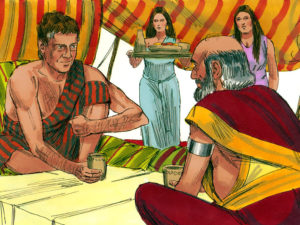 Nu, Jonathan, do you chap now that avada Yaakov did lie but that his prevarications and mendaciousness were mamish employed because he wanted to save a life, his own, where such actions are avada permitted? Of course you do! Nu, once Yaakov was thinking that peace, and piece are interchangeable, this week’s parsha will discuss bi’arichus (in great depth) some of the trickery or perhaps wisdom, Lovon employed on an unsuspecting Yaakov as he, Yaakov was waiting with baited breath to marry the girl he fell in love with at first sight. Also, in our 7th review of this amazing parsha, one of Yaakov’s four wives will remind him about his previous lies. We will cover that as well, halt zich eyn (keep your pants on).
Nu, Jonathan, do you chap now that avada Yaakov did lie but that his prevarications and mendaciousness were mamish employed because he wanted to save a life, his own, where such actions are avada permitted? Of course you do! Nu, once Yaakov was thinking that peace, and piece are interchangeable, this week’s parsha will discuss bi’arichus (in great depth) some of the trickery or perhaps wisdom, Lovon employed on an unsuspecting Yaakov as he, Yaakov was waiting with baited breath to marry the girl he fell in love with at first sight. Also, in our 7th review of this amazing parsha, one of Yaakov’s four wives will remind him about his previous lies. We will cover that as well, halt zich eyn (keep your pants on).
But wait: Yaakov was left naked, without clothing? Mamish? Says who? Hey, you never heard that medrish while in yeshiva? Neither did the Oisvorfer. You only heard from your rebbe that Elifaz merely stripped away all his possessions? Shoin, leave it to the Oisvorfer to give it some coverage. The medrish will further dress up the story and says the Chido (Rabbi Azulai), azoy: Yaakov found himself possession-less and without clothing. What to do? Could he have proceeded on foot to Lovon’s house and neighborhood sans clothing? What to do? He made his way into a nearby river and while enjoying a nice swim and contemplating his next moves, a wealthy nobleman passed by in a carriage. He decided to stop for a swim. He disrobed and went into the water. Immediately he drowned. Yaakov quickly chapped that the RBSO performed a miracle. Suddenly he had clothing and wheels. No wonder he would arrive to the well when it was still daylight. But is that where he went? No! Instead, he emerged from the water, got dressed, and rode directly to the yeshiva of Sheym & Eyver where he spent the next fourteen years, mistama studying life skills on how deal with the trickery Lovon had in store for him. It is a wonder people love learning medrish?
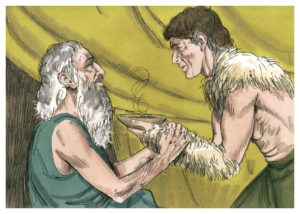 The bottom line: Did Yaakov lie to his father? Says Rashi: no! Ober says the Ibn Ezra: Yes, he did! And says the Ibn Ezra even more: Yaakov was not the first to fabricate a myseh (lie). He points out that our holy Patriarch Avrohom concocted a story regarding Soro being his sister. Twice. Yitzchok lied when stating that Rivka was his sister. Soro lied when asked why she was laughing after the Malochim predicted her coming pregnancy. Ober we close out Jonathan’s question azoy. Says the heylige Gemora quoting the heylige Novee (II Shmuel 22:27) mamish so gishmak azoy: “with an honest person, act honestly; and with a corrupt person, act perversely.” And before a few wisenheimer readers who know from their studies that the above quoted posik (verse) speaks of the RBSO, let the Oisvorfer remind you that the heylige Gemora homiletically interprets this verse to teach us that one may in fact employ some chutzpah, a few vagaries, prevarications and others words that all mean lies, when dealing with a cheat.
The bottom line: Did Yaakov lie to his father? Says Rashi: no! Ober says the Ibn Ezra: Yes, he did! And says the Ibn Ezra even more: Yaakov was not the first to fabricate a myseh (lie). He points out that our holy Patriarch Avrohom concocted a story regarding Soro being his sister. Twice. Yitzchok lied when stating that Rivka was his sister. Soro lied when asked why she was laughing after the Malochim predicted her coming pregnancy. Ober we close out Jonathan’s question azoy. Says the heylige Gemora quoting the heylige Novee (II Shmuel 22:27) mamish so gishmak azoy: “with an honest person, act honestly; and with a corrupt person, act perversely.” And before a few wisenheimer readers who know from their studies that the above quoted posik (verse) speaks of the RBSO, let the Oisvorfer remind you that the heylige Gemora homiletically interprets this verse to teach us that one may in fact employ some chutzpah, a few vagaries, prevarications and others words that all mean lies, when dealing with a cheat.
Ober doesn’t the heylige Gemora (Pisochim 113b) tell us “The RBSO hates one who speaks one thing with his mouth and another thing in his heart?” It does. The heylige Gemora (Soitah 42a) also tells us azoy: liars will not receive the Divine Presence. And weren’t we taught that the very first question we might be asked when we get up to meet our Maker while seeking entrance into Heaven will be “Have you been honest in your dealings? In other words: have you been speaking emes or spinning tales?
On the other hand, says the heylige Gemora (Yivomis 63A), azoy: Rav was constantly tormented by his wife. When he asked her for lentils, she prepared peas. When he asked for peas, she gave him lentils. (Mamish a bitch!) Having observed this odd behavior for years, when Chiya, Rav’s son grew up, he hatched a plan. He reversed his father’s request. It worked. Once Rav said to Chiya: “your mother has improved!” Ober Chiya replied: “It is I who reversed your requests to her.” Said Rav: “This is what people say, Your own offspring teaches you reason.” He then added: You should not however continue to do so (reverse and lie to your mother) because the Novee (Yirmiyohu 9:4) stated: “they have taught their offspring to speak lies.” The heylige Gemora has many more stories which speak of prevarications, they cut both ways. The givaldig news is this. Despite the mysehs quoted, regarding how lying is not good, at times it’s necessary for the master plan, of which you must ever be mindful. The RBSO set all this up. He is the Master Puppeteer. He runs the entire velt (world). It was His plan for these events to unfold as they all did. He therefore allowed for the various schemes to unfold. And what appears to you as nefarious activity by Eisav, or conspiracies between Yaakov and Rivka to fool Eisav, are not quite what you think. The RBSO chose our forefathers and foremothers. And just because Eisav ran to jump out of the womb first, mistama the hospital was near a church, he had no real rights to the birthright. What to do? The RBSO came to Rivka through ‘ruach hakoidesh’ (divine spirit) and helped her concoct the plan to fool her husband into giving Yaakov what was already his. Gishmak!
Jonathan: your second question took up kimat two pages and we haven’t yet addressed the first. What about Eisav and the birthright? The very short answer is that Eisav’s odd behavior and business acumen too were part of the master plan. If you write again next year, we will dig further and regale you with a few more very interesting and entertaining quotes from the heylige Gemora and other sources. Thank you for your kind comments and keep on enjoying the Oisvorfer’s review where we, with heavy doses of humor and sarcasm, tackle the lacunas in the heylige Toirah with real emes. A gittin shabbis.
Welcome (finally) to Parshas Vayetzay which is action packed, suspenseful and contains all the elements of a romantic thriller. One man, a love story, four women, a scheming father-in-law, twelve children, intrigue, bait and switch, and even more. Everyone loves this parsha and it zicher gave the heylige Gemorah and the medrish lots of material. Even oisvorfs like many of you, remember how Yaakov left Be’er Sheva, arrived in Choron, met Rochel at the well, kissed her, fell in love, worked seven years for his farbrecher (bad guy) of a father-in-law, got married, found Leah in his bed, waited a week, got Rochel, got both handmaidens- married them too- making a total of four wives and had a bunch of children including everyone’s favorite Toirah character Yoisef, (Binyamin will be born next week). Hundreds of pages have been written in the heylige Gemora and medrish just on the seemingly innocent kiss at first sight, or was it? What many of you have forgotten or never knew is how Yaakov skedaddled out of town with his brood and was a chased down by his shver who warned him not to withhold sexual pleasures from his daughters. Mistama Lovon’s warning to Yaakov was Toirah mention worthy because such a case never happened before and likely never again will. Has your shver ever sat you down to discuss performance issues? Moreover, though not explicittly mentioned in the heylige Toirah, this is also the parsha that gave birth to three huge business opportunities, industries mamish: the entire yarmulke (kippa) gisheft (business), the board game Chutes and Ladders came from Yaakov’s dream, and the biggest of all, the ever growing and burgeoning mamish Sheva Brochos Industry, all have roots in this week’s parsha. Gishmak. Soon, we’ll explain.
Ober mistama you’d like to hear how the medrish dealt with some of the seemingly extraordinary family dynamics. It’s not every day that our Toirah characters, let alone the great ones, marry sisters, maybe even twins. They were twins? Nu, soon we’ll explore that possibility as well. How old were they? Of course that depends on who you ask. The medrish will want to chap how Yaakov didn’t know it was Leah in his bed until the morning and has many other questions about the most unusual family dynamics. We are never told explicitly how Leah was switched for Rochel and we wonder what went on behind the scenes, in the bed and under. There was activity under the bed? Soon we’ll explain what that means. Did Leah comply with Lovon or was she somewhat forced? Did Rochel cover up for Leah? Because the heylige Toirah is silent, the Medrish wants details, especially the juicy one’s and they, with their very colorful imaginations, will provide them. Are their theories emes, ver veyst but zicher it’s possible. Though many of these topics have been well covered by the Oisvorfer in previous editions – see the archives at www.oisvorfer.com – still, every year as this parsha comes around, many of the same questions, keep popping up, as did efsher Yaakov, if you chap, in order to service four wives, all related. And this year, we‘ll take a closer look at this sister pair of nishey chayil (wives); let’s not forget that these two sisters and their handmaidens were the women that built the ‘House of Israel’. Ober in order to chap what might have taken place, we need to lay some background, Yaakov certainly did his part, and here we go. Lommer lernin inaveynig (let’s learn the text).
 Says the heylige Toirah (29:16-20) “When he (Yaakov) had stayed with him (Lovon) for a month, Lovon said to Yaakov, Just because you are my kinsman, should you serve me for nothing? Tell me, what shall your wages be? Now Lovon had two daughters; the name of the older one was Leah, and the name of the younger was Rochel. Leah had sensitive eyes, (more on her eyes soon); Rochel was shapely and beautiful. Yaakov loved Rochel. ‘I will serve you for seven years for your younger daughter Rochel’…. Yaakov served seven years for Rochel and they and they seemed to him but a few days because of his love for her.”
Says the heylige Toirah (29:16-20) “When he (Yaakov) had stayed with him (Lovon) for a month, Lovon said to Yaakov, Just because you are my kinsman, should you serve me for nothing? Tell me, what shall your wages be? Now Lovon had two daughters; the name of the older one was Leah, and the name of the younger was Rochel. Leah had sensitive eyes, (more on her eyes soon); Rochel was shapely and beautiful. Yaakov loved Rochel. ‘I will serve you for seven years for your younger daughter Rochel’…. Yaakov served seven years for Rochel and they and they seemed to him but a few days because of his love for her.”
And who could blame him? Rochel was shapely and beautiful, so says the heylige Toirah. Says the medrish (Tanchuma, Vayetze 6) azoy: there was no maiden fairer than Rochel. Though a few argue that beauty is only skin deep, many agree that ugliness goes right to the bone. The heylige Toirah spares no effort in describing this romantic love-at-first-sight story. Yaakov, a penniless on the run fugitive worked seven years to gain her hand in marriage and his deep feelings of love for her eclipsed any hardships as a result of Lovon’s shenanigans. And while the Toirah tells us that Rochel was beautiful, all we know about Leah is that she had eyes that were soft, sensitive or weak. Which was it and what’s pshat? What did she look like? Nu, it depends on who you ask.
Says the medrish (Tanchuma Vayetze 12) azoy: both (girls) were equal in beauty and in their erect stature. Not so says the RashbaM: her eyes (only) were “beautiful and refined”. While Rochel was an all-around beauty, Leah had nice eyes; that’s it. Says SRH (Hirsch) azoy: Instead of saying that she was not particularly good looking, the heylige Toirah, ever mindful of people’s feelings, mentions only her pretty eyes, the redeeming side of her appearance. In other words: she was ugly! Ober says the RalbaG: she had eye issues; an eye disease which affected her otherwise good looks. And says Rashi quoting the medrish: Leah’s eyes were red and weepy from constant crying. Why? Because as we will soon learn, according to the medrish, and who imagined things any more vividly than they, Leah was supposed to marry Eisav ober she knew that he was a bum, a murderer, a rapist and worse. What could be worse? She wanted to marry Yaakov; mistama she wanted a learner, someone who spent 14 years in Yeshiva. Ober because she was prearranged for Eisav, she spent many years crying, with tears mamish, bemoaning her fate. Her tears resulted in her eyes being red and soft. And the bottom line, ver veyst? By majority consensus, it appears that Rochel was the beauty queen and Leah, epes not so.
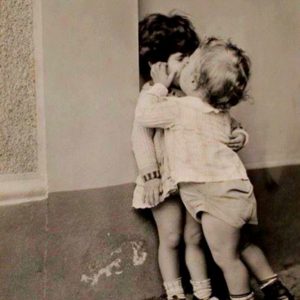 Efsher you recall learning that Rochel worked as a shepherd for the flocks of her father, Lovon. Asks the RambaN azoy: why would Lovon assign this task specifically to Rochel, the younger of his two daughters rather than to the older Leah? Taka an excellent kasha ober the RambaN suggests two possible answers. Efsher (maybe) because of her eye condition, her father limited her exposure to the outdoors and to the sun. Mistama this was before the advent of sunglasses and surprisingly, none of the early Toirah entrepreneurs chapped what a big business this would become. Another possible pshat: it was davka because of Rochel’s youth that she was assigned the responsibility of shepherding. Seemingly, Leah had already reached physical maturity, and her father, ever the modest person, therefore preferred that she remain in or near the home on lockdown rather than venture out and attract the attention of immoral male shepherds. Ober Rochel was still a child, and therefore Lovon felt secure allowing her to tend to his flocks in the fields alongside the other local shepherds. And how old was this child shepherd? Avada not all agree and soon we’ll hear. If this is taka pshat and she was taka a child, this might also address how Yaakov’s impulsive kiss at first sight which befuddled most commentators, was quite innocent. A hello kiss to a young cousin is seemingly always mutir (permitted) unless of course the kiss is in an inappropriate place. Givaldig, ober how old or young was she really? Says Rabbaynu Bechaya azoy: Rochel was a healthy five years of age, possibly even three at the well incident. Five or three? And to prove his point, he suggests that Yaakov’s offer to work for Lovon seven years in order to marry Rochel, was precisely because she was underage. She had no signs of physical maturity and thus, not yet suitable for marriage, zicher useless to Yaakov and seemingly safe among those shepherds eager to dip into the well, if you chap.
Efsher you recall learning that Rochel worked as a shepherd for the flocks of her father, Lovon. Asks the RambaN azoy: why would Lovon assign this task specifically to Rochel, the younger of his two daughters rather than to the older Leah? Taka an excellent kasha ober the RambaN suggests two possible answers. Efsher (maybe) because of her eye condition, her father limited her exposure to the outdoors and to the sun. Mistama this was before the advent of sunglasses and surprisingly, none of the early Toirah entrepreneurs chapped what a big business this would become. Another possible pshat: it was davka because of Rochel’s youth that she was assigned the responsibility of shepherding. Seemingly, Leah had already reached physical maturity, and her father, ever the modest person, therefore preferred that she remain in or near the home on lockdown rather than venture out and attract the attention of immoral male shepherds. Ober Rochel was still a child, and therefore Lovon felt secure allowing her to tend to his flocks in the fields alongside the other local shepherds. And how old was this child shepherd? Avada not all agree and soon we’ll hear. If this is taka pshat and she was taka a child, this might also address how Yaakov’s impulsive kiss at first sight which befuddled most commentators, was quite innocent. A hello kiss to a young cousin is seemingly always mutir (permitted) unless of course the kiss is in an inappropriate place. Givaldig, ober how old or young was she really? Says Rabbaynu Bechaya azoy: Rochel was a healthy five years of age, possibly even three at the well incident. Five or three? And to prove his point, he suggests that Yaakov’s offer to work for Lovon seven years in order to marry Rochel, was precisely because she was underage. She had no signs of physical maturity and thus, not yet suitable for marriage, zicher useless to Yaakov and seemingly safe among those shepherds eager to dip into the well, if you chap.
Seemingly she wasn’t as mature as her future mother in-law Rivka was at the tender age of three when she was already making decisions about her life, riding on a camel and also engaged to Yitzchok. Ober says the Seder Olam that Leah and Rochel were twenty-two, twin sisters, when they each married Yaakov, which means that they were fifteen when Yaakov arrived in Choron seven years earlier. Needless to say, neither the RambaN nor Rabbaynu Bechaya agreed with his view. Ober (however) said the Vilna Gaon: Leah and Rochel are said to have been twenty-one, rather than twenty-two, at the time of their marriage. For this age to be correct, Leah and Rochel were born at the time when Yaakov “stole” his father’s blessing from Eisav and fled from home. Says Rashi (28:11) citing the medrish: Yaakov spent fourteen years in that famous Yeshiva of Shem and Eyver studying the heylige Toirah immediately after leaving his home, and only then traveled to Choron. Rochel and Leah were thus fourteen years of age when he arrived at the well, and married him seven years later, at the age of twenty-one. All clear on her age? Not really.
Seemingly our Toirah heroes liked their women young and who can blame them, ober not all agree that the girls (Rivka and Rochel) were 3 and 5 years old at the time of their marriage. Rochel was either 3 or 5 and already a shepherdess? This is what the Toirah states (not her age). Is every girl at the well under six years old? And if the Toirah tells us that Yaakov kissed Rochel on their first date, who are we to argue and discuss whether his motives were pure or lustful, chas v’sholom? Didn’t your parents always beckon you to behave like our heylige Ovois (forefathers)? Does the Toirah tell us how, where and why he kissed her? Raboyseyee: the Toirah is emes and that’s it, why create controversy?
Ober listen to this: Says the Tanchuma Yoshon (Vayetze, 12): that the shvesters (sisters) Rochel and Leah were born at the same time as their cousins – Yaakov and Eisav. In other words, they were 63, yikes! He says that the two sets of twins were born at the same time and that their parents (Yitzchok and Rivka and Bisuale and his eishes chayil) exchanged letters in which they agreed that the first cousins should and would marry one another, sometime down the road, like 63 years later. Eisav would marry Leah, and Yaakov would marry Rochel. Shoin settled! Ok, let’s review what we heard so far. And with this latest Medrish in the mix, the girls were either 3, 5, 21, 22 or 63, case closed!
One thing is zicher: Yaakov eventually ended up with Rochel, his primary love but not before marrying Leah after he was duped by his shvindler and fupper (con artist) of a shever (father-in-law). As a bonus, he also collected another two wives on the side and had children with each of his four wives. And now he was taka Yaakov Oveenu and well on his way to being the father of the Yiddin. Ober did Lovon act alone?? Let’s learn some more.
Says the heylige Toirah (Bereishis 29:25) azoy: “…and it came to pass in the morning and behold it was Leah.” Yaakov had just completed seven years of work to win Rochel’s hand in marriage, married her, took her home to get to know her (consummate) and in the morning, he found Leah in his bed? OMG? How could that be? Did Yaakov, post chuppah, mistakenly enter the wrong bedroom? Did he forget to appoint eyday yichud (witnesses)? Where were they?
It does epes appear that Yaakov was making love to one person and thinking about another, a model since emulated by most men around the world, if you chap. Ober was this and is this kosher? Was his marriage to Leah not a mekach tous (a sham)? Though this episode took place thousands of years ago and dozens have pontificated on what might have taken place, many still ask questions. How it possible is that Yaakov didn’t know that he spent his wedding night with Leah rather than Rochel? Even in the days before electricity, was this even meyglich (possible)? Did he not know what she looked like, what she sounded like? Didn’t the heylige Toirah tell us that Rochel was a beauty and Leah had soft eyes? Did she forget to lift her veil or did Yaakov because of her homely looks keep it on, ver veyst? And wait until you hear what the heylige Gemora and others have to say might have taken place. Might have is the operative term because the heylige Toirah is mostly silent on these details. Lommer lernin.
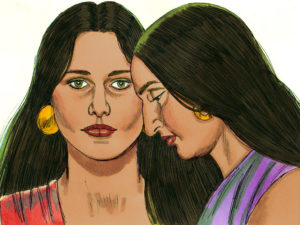 Ober says the RadaK, not to worry: what really took place is a testament to the extraordinary modesty of Yaakov and Leah because according to him, all through the night, they did not see or even speak to each other. It was an innocent mistake, though not the excuse one you should try on the eishes chayil, if you chap or get chapped. Shoin: like most other married couples, with eyes closed and without any pillow talk, they went about their business, rolled over and shoin. What’s there to talk about?
Ober says the RadaK, not to worry: what really took place is a testament to the extraordinary modesty of Yaakov and Leah because according to him, all through the night, they did not see or even speak to each other. It was an innocent mistake, though not the excuse one you should try on the eishes chayil, if you chap or get chapped. Shoin: like most other married couples, with eyes closed and without any pillow talk, they went about their business, rolled over and shoin. What’s there to talk about?
Ober another Medrish (Tanchuma) chimes in with a bombshell, mamish and says azoy: Yaakov never intended to marry Rochel. He preferred Leah! Though the heylige Toirah tells us that Rochel was a Yifas Toiar, V’yefas Mareh ( a beauty- body and face), according to this pshat, none of those qualities appealed to Yaakov: he wanted Leah. He did? Not everyone wants to marry a yifas toiar. OMG! Efsher we can kler that Yaakov thought that she was epes too pretty, too hot to handle. Or efsher we can kler that Yaakov remembered what happened to his father and his zeyda when they married beautiful women and efsher he was taka afraid that some king might chap her for yet another palace tour, ver veyst? Ober if he preferred Leah, why and how then did he end up with Rochel? Seemingly, Yaakov knew that his marriage and that of his brother Eisav were previously pre-arranged by his mother Rivka. They were? Seemingly, the parents, as mentioned above, had made an arrangement whereby the older brother Eisav would marry Leah (the elder of the sisters) and Yaakov would get the younger daughter. Older to older and younger to younger; gishmak!
And taka that’s what Yaakov had in mind at the well. He saw Rochel, realized that Leah was spoken for and figured he’d chap Rochel. Why not upgrade? He was klerring azoy: “When I stole the brochos (blessings), Eisav sought to kill me. Now, when I take his intended wife, he will leave Machlas, the daughter of Yishmoel [whom he had married at the very end of last week’s parsha], and he will come to me and say: ‘Was it not enough for you, that you took my birthright and my blessing, you have also taken my intended?’“ Yaakov therefore asked Lovon to give him Rochel’s hand in matrimony. Ober Lovon, that snake, also knew that Eisav married Machlas and he was worried about Leah not finding a mate and having to hang out on the upper West Side for many years. What to do? He concocted a plan to have Yaakov marry Leah instead. Shoin: it all ties together: there was a deal in place set up by Rivka and Lovon her brother. Ober once Eisav married into the Yishmoel family, Lovon broke the deal and decided to trick Yaakov into marrying Leah. Is that what happened? Efsher but maybe it didn’t. Let’s see another.
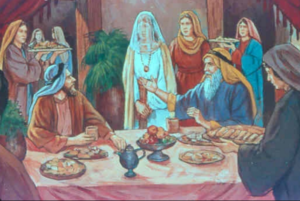 And taka says another medrish farkert (opposite): Yaakov wanted Rochel from the get-go. Actually this medrish is more in line with the heylige Toirah’s narrative. Yaakov saw Rochel, she was taka a beauty and the heylige Toirah goes out of its way to tell us these facts. His father married a beauty as did his zeyda Avrohom, why not he? He fell in love at first sight- at the well mamish- maybe with the first kiss, ver veyst. He proposed marriage on the spot. She responded with a worried look: “Yes, but my father is a con artist and he will get you” Yaakov asked: “What is his game plan, how will he try tricking me? Said she: “I have an older sister, and he will not marry me off before her.”Said Yaakov: “I am his brother in deceit.”Hec, I fooled my brother Eisav twice. Yaakov gave Rochel signs (so that he would be able to recognize her on the wedding night). Ober what Yaakov did not count on, was the bond between the sisters. When Leah was brought under the chupa (canopy), Rochel thought: “Now my sister will be shamed and she gave the signs to Leah. All this lead to the big morning surprise and says the heylige Toirah (Bereishis 29:25) azoy: “When morning came, there was Leah!” Rochel, the love of his life, gave Leah the signs and the unsuspecting Yaakov had no clue until the morning that they (the girls) had been switched so says the heylige Gemora (Buba Basra 123A).
And taka says another medrish farkert (opposite): Yaakov wanted Rochel from the get-go. Actually this medrish is more in line with the heylige Toirah’s narrative. Yaakov saw Rochel, she was taka a beauty and the heylige Toirah goes out of its way to tell us these facts. His father married a beauty as did his zeyda Avrohom, why not he? He fell in love at first sight- at the well mamish- maybe with the first kiss, ver veyst. He proposed marriage on the spot. She responded with a worried look: “Yes, but my father is a con artist and he will get you” Yaakov asked: “What is his game plan, how will he try tricking me? Said she: “I have an older sister, and he will not marry me off before her.”Said Yaakov: “I am his brother in deceit.”Hec, I fooled my brother Eisav twice. Yaakov gave Rochel signs (so that he would be able to recognize her on the wedding night). Ober what Yaakov did not count on, was the bond between the sisters. When Leah was brought under the chupa (canopy), Rochel thought: “Now my sister will be shamed and she gave the signs to Leah. All this lead to the big morning surprise and says the heylige Toirah (Bereishis 29:25) azoy: “When morning came, there was Leah!” Rochel, the love of his life, gave Leah the signs and the unsuspecting Yaakov had no clue until the morning that they (the girls) had been switched so says the heylige Gemora (Buba Basra 123A).
According to this pshat, Lovon did not act alone. It appears that Rochel and Leah were co-conspirators and only Yaakov was in the dark. And says the medrish, Lovon would not have succeeded in deceiving Yaakov without Rochel’s involvement. Rochel had to choose between her love for Yaakov and her compassion for her sister, and she decided in favor of the latter. Nu, from twins, this should be expected. Avada in yeshiva they taught us that Lovon was the only bad guy in the story, that he was a conniving bastard. Ober as we read this medrish and the next one, a different picture emerges.
According to this medrish, Rochel is neither innocent nor passive. Another blow away medrish we’ll read just below will suggest that Rochel’s magnanimous gesture of letting her sister chap her husband, avada motivated by great love for her sister plus efsher some fear of her father, might be compared to the relationship between the RBSO and His people following the destruction of the Beis Hamikdash (Temple) in Yirusholayim. Just as Rochel did not display jealousy toward Leah but instead helped her, similarly, the RBSO should not act out of jealousy. Rochel’s monologue will persuade him to declare that He will restore the Yiddin people to their land. All this sounds gibberish ober soon we’ll explain.
And the final bombshell (for now):
Says another medrish (Eicha Rabbah) azoy: the most extreme description of Rochel’s act of self-sacrifice took place not on the bed but under it. It did? Seemingly, Rochel entered under Yaakov and Leah’s bedroom on their wedding night and slid under the bed, mamish. When Yaakov spoke with Leah, Rochel would answer him, so that he would not identify Leah’s voice. She did what? According to this pshat, Rochel’s hands were a shtikel dirty, mistama also her clothing form valgering in the dust under the bed. She was mamish in on the plot and switch. Did this really happen? Ver veyst ober here is the rest of that medrish with more color.
One by one, the nation’s ancestors stand before the RBSO, pleading with Him to reverse the destruction of the Temple in Jerusalem and to return His exiled children to Canaan. “Then Rachel stood before God, saying to him, ‘Master of the Universe, you know that Yaakov your servant loved me very much, that he worked seven years for my father in order to wed me and that, when the seven years were over and the time came for him to marry me, my father decided that Leah would replace me as Yaakov’s bride. When I learned of my father’s plan, I was very saddened. I informed my prospective husband of the plot and gave him a secret sign that would enable him to distinguish between me and my sister in the darkness of the wedding night and which would thus prevent my father from replacing me with Leah. However, I soon regretted my action and decided to bridle my passion for Jacob. Taking pity on my sister, I was determined that she should not be humiliated. In the evening, when my sister Leah was substituted for me as Jacob’s bride, I transmitted to her the sign I had given Yaakov, so that he would think that he was marrying me.
“Furthermore, I hid under the bridal bed on which Jacob was lying with my sister. He spoke to her, but she said nothing; instead, I replied on her behalf, so that he would think that she was the one who was talking to him. I acted kindly toward her; I felt no jealousy toward her and I saved her from embarrassment. I, a creature of flesh and blood, a creature of dust and ash, felt no jealousy toward my rival and did not expose her to shame and humiliation. Why then were you, Master of the Universe, a king who lives forever and who is full of compassion, jealous of idolatry, which has no substance, and why did you exile my children, who were killed by the blade of a sword and whose enemies treated them with absolute cruelty?’ On hearing these words, the RBSO’s heart was immediately filled with pity and He said, ‘For Rochel’s sake, I will restore Israel to its rightful place’”.
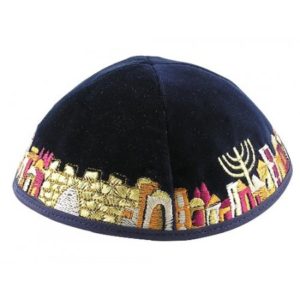 Let’s chazir (review): Yaakov skedaddled out of town at the age of sixty three. Kimat all agree on that number. He then went directly to the very famous but perhaps mythical yeshiva of Sheym & Eyver for fourteen years and arrived to Choron at the age of seventy seven. One medrish suggests that he may have skipped the fourteen year yeshiva stint. Under either scenario, a young man he was not when he finally married the decades younger sisters one week apart. Yaakov worked for Lovon seven years intending to marry Rochel and got Leah. Just prior to the wedding, a seven day banquet was thrown. When he complained that this father in-law fooled him, Lovon said, let’s rejoice for seven more days and then you can marry Rochel. Nu believe it or not, from this Lovon character, bad guy that he was, our Rabbi’s chapped after reading the medrish (Pirkei de-Rabbi Eliezer) that seven days of feasting and rejoicing are in order for the chosson and kallah (bride and groom). Shoin: today we call this post wedding celebration sheva brochos and Toirah entrepreneurs figured out that this is a multimillion dollar business and dozens of catering halls, caterers, one man music bands, those who sell picture frames and others, make a living just from this one medrish. And as the Oisvorfer has told you in the past: there’s no business like Toirah inspired business. It’s of course possible that this Eliezer fellow who penned this medrish was himself, efsher a caterer or owned a shtikel restaurant with a party room upstairs.
Let’s chazir (review): Yaakov skedaddled out of town at the age of sixty three. Kimat all agree on that number. He then went directly to the very famous but perhaps mythical yeshiva of Sheym & Eyver for fourteen years and arrived to Choron at the age of seventy seven. One medrish suggests that he may have skipped the fourteen year yeshiva stint. Under either scenario, a young man he was not when he finally married the decades younger sisters one week apart. Yaakov worked for Lovon seven years intending to marry Rochel and got Leah. Just prior to the wedding, a seven day banquet was thrown. When he complained that this father in-law fooled him, Lovon said, let’s rejoice for seven more days and then you can marry Rochel. Nu believe it or not, from this Lovon character, bad guy that he was, our Rabbi’s chapped after reading the medrish (Pirkei de-Rabbi Eliezer) that seven days of feasting and rejoicing are in order for the chosson and kallah (bride and groom). Shoin: today we call this post wedding celebration sheva brochos and Toirah entrepreneurs figured out that this is a multimillion dollar business and dozens of catering halls, caterers, one man music bands, those who sell picture frames and others, make a living just from this one medrish. And as the Oisvorfer has told you in the past: there’s no business like Toirah inspired business. It’s of course possible that this Eliezer fellow who penned this medrish was himself, efsher a caterer or owned a shtikel restaurant with a party room upstairs.
Nu, earlier the Oisvorfer told you that the Kippa (yarmulke) business was also born in this very parsha and though we have previously covered this, let’s revisit this old Jewish joke. Nu, the first possik (verse) of the parsha states azoy: Yaakov left Be’er Sheva and went to Choron. And the Yiddin ask: would he have gone without a yarmulke? Of course not! Shoin: a naya gisheft (new business opportunity) sprung forth and everyone who goes anywhere, avada wears a kippa. And everyone owns at least a few dozen mostly that they chapped at a wedding or bar mitzvah where the host put them out for the few non observers or goyim who came without a kippa. In the end, these guys didn’t get one because most of the frum Yiddin needed to line their pockets with at least a few. Shoin! Free is free; we simply cannot help ourselves. Veyter.
Let’s cover one more topic we briefly touched upon earlier. After siring twelve kinderlach and being fooled by his farbrecher shver, Yaakov had enough of his Uncle’s (also his father in law) shtick (BS). In the middle of the night, he left with his four wives, dozen plus kids and all else. The uncle was not a happy camper, gave chase and they had a shtikel encounter. Ober just before the meeting, the RBSO appeared to Lovon and warned him not to harm Yaakov who was now on his way to becoming Yaakov Oveenu (our forefather). Instead when Lovon approached he warns Yaakov not to withhold sexual favors from his daughters. He did? Really? Is this mamish in the heylige Toirah? Say it’s not so. Nu, the emes is that Rashi, who else, provides some color, not that it’s needed. Rashi is quoted in the shaded box. Ober before you get to the second shaded box, let’s look at the first which contains yet another bombshell, mamish.
- If you afflict my daughters, or if you take wives in addition to my daughters when no one is with us, behold! God is a witness between me and you.” נ. אִם תְּעַנֶּה אֶת בְּנֹתַי וְאִם תִּקַּח נָשִׁים עַל בְּנֹתַי אֵין אִישׁ עִמָּנוּ רְאֵה אֱ־לֹהִים עֵד בֵּינִי וּבֵינֶךָ:
…my daughters…my daughters: Twice. Bilhah and Zilpah were also his daughters from a concubine. — [from Pirkei d’Rabbi Eliezer, ch. 36] בנתי בנתי: שתי פעמים, אף בלהה וזלפה בנותיו היו מפלגש:
If you afflict my daughters: By depriving them of their conjugal rights (Yoma 77). אם תענה את בנתי: למנוע מהם עונת תשמיש:
 Did we just learn that Yaakov married not just two sisters and their housekeepers but two full sisters and two half sisters? Niflois Haboire, (OMG): indeed you did! As Rashi, (look in the shaded box you idiot) understood this possik, uncle Lovon had his own Pilegesh (concubine), had two daughters with her and gave Yaakov all four. Nu, that’s what I call a father–in-law; when the Oisvorfer got married 29 years ago (last week), he had no such luck (though he’s avada tzifriddin with what he did get). Efsher maybe he didn’t want Yaakov to lust after the ’other’ sisters and to keep him busy, gave him four of a kind. Uncle Lovon: not a bad guy after all! Maybe even a great guy…read on……….
Did we just learn that Yaakov married not just two sisters and their housekeepers but two full sisters and two half sisters? Niflois Haboire, (OMG): indeed you did! As Rashi, (look in the shaded box you idiot) understood this possik, uncle Lovon had his own Pilegesh (concubine), had two daughters with her and gave Yaakov all four. Nu, that’s what I call a father–in-law; when the Oisvorfer got married 29 years ago (last week), he had no such luck (though he’s avada tzifriddin with what he did get). Efsher maybe he didn’t want Yaakov to lust after the ’other’ sisters and to keep him busy, gave him four of a kind. Uncle Lovon: not a bad guy after all! Maybe even a great guy…read on……….
Chevra, you’re so busy thinking about Yaakov and his foursome, oisvorfs that you are, most of you forgot to read what uncle Lovon says in the first few words of the very same possik: let’s see it again. Lovon states ’If you afflict my daughters…’ and Rashi states what? What was that? Rashi quoting the heylige Gemora in Yuma (77b) (which concludes that withholding cohabitation is mamish an affliction) states that Lovon warned Yaakov not to deprive his daughters from conjugal visits. You hear this Raboyseyee? Why the Hagodo (shel Peysach) suggests that Lovon was a bad guy, is mamish shver to chap? Seemingly, Lovon was a great guy, certainly a great father-in-law and not a terrible person after all. If a father-in-law tells his son-in-law to give his daughters plenty and he doesn’t mean jewelry, he’s a tzadik.
And the lessons to be learned here? We need to chap that the entire Sefer B’reishis is given to us so that we can learn from our Ovois and Emohois, heylige and special people that they were. Farshteyt zich (it’s understood) that their family dynamics were efsher a shtikel radical for our times, who can handle four wives in our times? Their social lives, to put it mildly, were quite exciting and avada who wouldn’t want to learn from them and maybe be them? We need to learn to emulate them, as their ways and midois are mamish worth loving and living. Avada you oisvorfs remember with clarity that three of our four emohois suggested and were active in giving their husbands a hot shiksa pilegesh (concubine) in order to have children and maybe also enjoy the meyseh (the act) itself. There’s no question that Rochel, Leah, and Soroh, in their holy righteousness, understood this concept. Of course you’d like to emulate them, at least this one part of their lifestyle, disgusting chazerim that you are. Ober bazman hazeh (in our times), one would zicher be hard pressed to have the eishes chayil agree to any such arrangement.
For this reason the sages of the heylige Gemora (Avoidah Zora 25a) called Sefer Bereishis, “Sefer HaYashar”, The Book of the Upright. Yaakov was certainly upright, if you chap, and perhaps a number of you are as well, as you read these givaldige love stories. It is the book of our holy and righteous foremothers and forefathers who excelled in their desire to acquire and refine their midois. Despite whatever challenges each one faced, they were selected and you weren’t. Perhaps they were selected because of them.
What nuggets can we take away from this parsha? Dreaming is important, it’s seemingly what kept Yaakov going during challenging times. Yaakov may have been a dreamer but he most certainly was not asleep at the switch; he is, after all, as we said above, the father of klal Yisroel and that’s no small accomplishment.
A gittin Shabbis
The Oisvorfer Ruv
Yitz Grossman
Source URL: https://oisvorfer.com/vayetzei-2016-liar-liar-pants-on-fire/